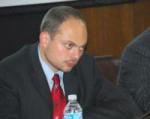http://www.worldaffairsjournal...Vladimir V. Kara-Murza
World Affairs
For those in the Kremlin who hoped that anticorruption protests on March 26 were a random episode, June 12 must have come as an unpleasant surprise. On Russia’s national holiday—marking the 1990 parliamentary declaration of sovereignty from the Soviet Union—tens of thousands of people went to the streets across the country to repeat their “No” to Vladimir Putin’s authoritarianism and corruption. Just as in March, most of those who took part in the rallies represented Russia’s young generation—university and high school students; those in late teens and early twenties; those who were raised (and in many cases born) under Putin but who are increasingly rejecting the nepotism, the lack of accountability, and the sheer arrogance of the small group that has now held power for nearly two decades. The rallies drew a wide cross-section of opposition groups—from supporters of anticorruption campaigner Alexei Navalny’s 2018 presidential bid to activists of Mikhail Khodorkovsky’s Open Russia movement who carried placards with the faces of Russia’s “Irremovable Regiment”—Putin and members of his close circle who have come to symbolize the corruption and abuses of his eighteen-year rule.
The protests were held in 187 cities and towns across Russia—more than twice as many as in March. Chants of “Russia without Putin” and “Russia will be free!” could be heard in Moscow and Barnaul, in Novosibirsk and Kazan, in Vladivostok and Kaliningrad, in Krasnodar and Khabarovsk. Most of the rallies were “unauthorized,” and their participants were assailed by riot police and officers of the National Guard, who wielded batons against demonstrators, including women and teenagers. “[One could] get the impression that we are dealing with an occupying army,” Khodorkovsky observed. Directing the attack against protesters on Moscow’s Tverskaya Street was Sergei Kusyuk, a former commanding officer of Ukraine’s now-defunct Berkut unit that tried to suppress the demonstrations on Kiev’s Maidan Square in 2013 and 2014. He is now wanted by the Ukrainian authorities on criminal charges.
More than 1,700 arrests were made in a single day. Some protest leaders—including Navalny—were arrested before they could make it to the rallies. In St. Petersburg, Andrei Pivovarov, leader of the local Open Russia branch, was blockaded in his apartment by officers from the Interior Ministry. The same happened to his colleague Nikolai Artemenko. “There are people in plainclothes and some who are in uniform,” he wrote. “What do they tell their children when they come home—that they spent the day catching criminals?”
The United States, the European Union, and Canada have issued strong-worded statements, calling on the Kremlin to “immediately release all peaceful protesters.” The Russian authorities are doing anything but. Hundreds of people—not only opposition activists, but journalists and even passers-by—have been handed fines and jail sentences ranging from two to thirty days. In St. Petersburg, a woman was initially acquitted, but her nineteen-year-old daughter was sentenced to jail. When the mother asked the judge not to separate her from her daughter, he agreed—and sent her to jail as well. “Russian justice has conquered yet another mountaintop of humanism,” remarkedopposition politician Dmitri Gudkov.
Meanwhile, the U.S. television network Showtime continues to air the series of Oliver Stone’s interviews with Vladimir Putin. Whatever those Russians on the streets (and in jail cells) may think, the veteran Hollywood director has his own view of the Kremlin leader. “The Russian people,” according to him, “have never been better off.”

